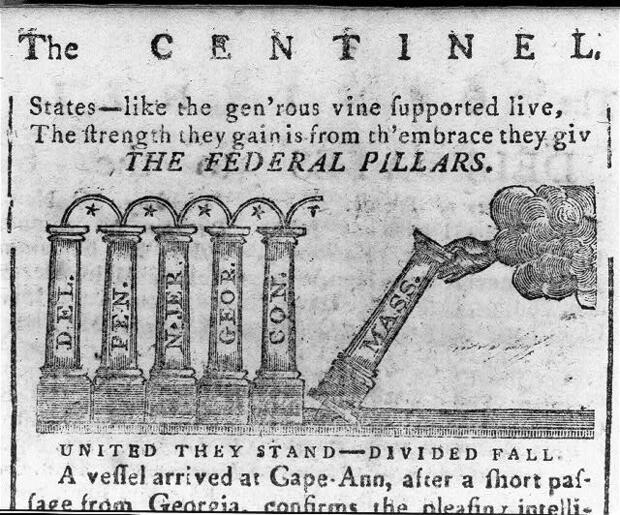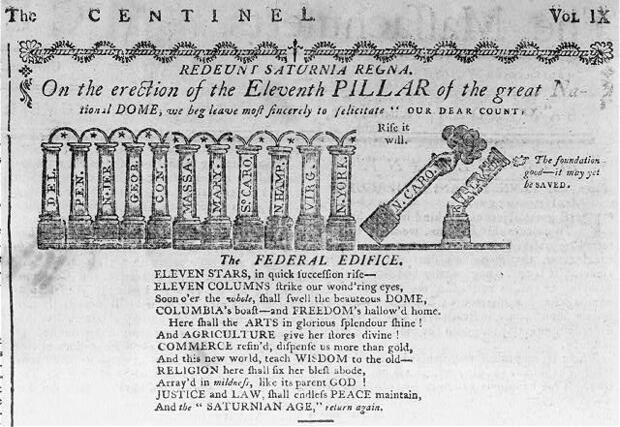- Trial Court Law Libraries
Massachusetts Invents the Constitutional Convention
“In 1779, the Massachusetts legislature issued a call to the towns for every male inhabitant to elect representatives to form a Convention for the sole purpose of framing a new Constitution, which would then require ratification by two-thirds of the same electorate. Massachusetts thereby invented the concept of convening a convention of the people, separate and apart from the legislature, for the sole purpose of creating a constitution. Massachusetts thus created and clarified the distinction between ordinary legislation and the fundamental law contained in a constitution, which may be created and changed only by ‘the people.’ ”
The Massachusetts Constitution was ratified on June 15, 1780, and became effective on October 25, 1780.
The Federal Pillars
In the years 1787 and 1788, there was much debate over whether or not to ratify a constitution for the United States. “ ‘In-doors’ in the State Houses in the various states . . . over 1600 elected delegates debated the merits of the Constitution and ‘out of doors’, the world witnessed the largest outpouring ever of pamphlets, newspapers, broadsides, and letters in favor and against the ratification of the Constitution.”
On February 7, 1788, Massachusetts ratified the federal constitution. Previously, five other states had ratified. Under Article VII of the proposed Constitution, a minimum of nine popularly elected state conventions needed to ratify the Constitution in order for it to be considered the founding document for the new union. By August of 1788, New Hampshire had become the ninth state to ratify, the ninth “pillar, as the phrase now is, to the Federal Temple”, to quote James Madison.
Alexander Hamilton writes in support of the ratification of the U.S. Constitution
Together with John Jay and James Madison, writing under the pseudonym “Publius”, Alexander Hamilton wrote a series of eighty-five essays which later came to be known as the Federalist Papers. Scholars have determined that Hamilton was the probable author of fifty-one of these essays, and their purpose was to encourage ratification of the U.S. Constitution, specifically in New York. The essays were originally published individually in New York newspapers. Bound editions soon followed. In The Forging of the Union, historian Richard B. Morris categorizes the Federalist Papers as “an incomparable exposition of the Constitution…unsurpassed in both breadth and depth by the product of any later American writer.”
Writing about Hamilton’s work on the Federalist Papers in Alexander Hamilton, Ron Chernow makes reference to Hamilton’s ability to “Mozart-like transpose complex thoughts onto paper with few revisions…He wrote with the speed of a beautifully organized mind that digested ideas thoroughly, slotted them into appropriate pigeonholes, then regurgitated them at will.”
We can appreciate that Alexander Hamilton stays alive through his writing, and with the help of the work of others.


